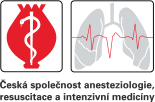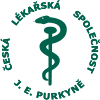Anest. intenziv. Med. 2006;17(5):235-240
Administration of COX-2 inhibitors modifies the course of postoperative delirium in cardiac surgery patientsAnaesthesiology - Original Paper
- Centrum kardiovaskulární a transplantační chirurgie, Brno
Objective:
Postoperative delirium (POD) is a common complication after major surgery. Our aim was to prove the hypothesis that systemic inflammatory response syndrome (SIRS) contributes to the development of POD. SIRS is a complex network of mutually interacting processes where one of the terminal tissue effectors is COX-2.
Design:
Prospective open-label study.
Setting:
Center for Cardiac Surgery and Transplantation.
Materials and Methods:
86 consecutive patients all over 65 years of age with coronary artery disease were enrolled. All of them were indicated for open-heart surgery (with or without revascularization). Patients with a past history of postoperative delirium were excluded. The patients were randomized into two groups: treated (N = 40) and controls (N = 46). The treated patients were administered parecoxib (40 mg IV after arrival on the ICU + continuous infusion of 1 mg/kg/day on the day of surgery and the first postoperative day) followed by valdecoxib (2 x 20 mg orally) on the second and third days. Each postoperative day (1-7) the patients were scored for the severity and clinical relevance of POD (0-5). The incidence, duration and severity score of POD were evaluated.
Results:
No differences in age, comorbidity and perioperative factors were observed between the groups. The duration of POD was significantly shorter in the treated group than in the control group (1.9 ± 0.9 vs. 3.6 ± 1.6 days; P = 0.02). The incidence of POD was the same in both groups. The severity score was lower in the treated group but did not reach statistical significance. The difference in the incidence of postoperative complications was not significant.
Conclusion:
Systematic administration of COX-2 inhibitors shortened POD duration after cardiac surgery suggesting that COX-2 could contribute to its development. POD ranks among the complications induced by SIRS. Interventions targeted at suppressing SIRS could act as a prevention of POD.
Keywords: postoperative delirium; coxibs; cardiac surgery
Published: October 1, 2006 Show citation
References
- Dyer, C. B., Ashton, C. M. Postoperative delirium - a review of 80 primary data-collection studies. Arch. Intern. Med.,1995, 155, p. 461-466.
 Go to original source...
Go to original source...  Go to PubMed...
Go to PubMed... - Laffey, J. G., Boylan, J. F., Cheng, D. C. H. The systemic inflammatory response to cardiac surgery. Anesthesiology, 2002, 97, p. 215-252.
 Go to original source...
Go to original source...  Go to PubMed...
Go to PubMed... - Bogatcheva, N. V., Sergeeva, M. G. Arachidonic acid cascade in endothelial pathobiology. Microvascular Research, 2005, 69, p. 107-127.
 Go to original source...
Go to original source...  Go to PubMed...
Go to PubMed... - Hála, M. Pooperační delirium - "častá" komplikace po kardiovaskulárních operacích (retrospektivní studie). Předneseno na 1. sjezdu České společnosti kardiovaskulární chirurgie 2004.
- Cernak, I., O'Connor, Ch., Vink, R. Inhibition of cyclooxygenase 2 by nimesulide improves cognitive outcome more than motor outcome following diffuse traumatic brain injury in rats. Experimental brain research, 2002, 147, p.193-199.
 Go to original source...
Go to original source...  Go to PubMed...
Go to PubMed... - Gierer, P., Mittlmeier, T. Selective cyclooxygenase-2 inhibition reverses microcirculatory and inflammatory sequelae of closed soft-tissue trauma in an animal model. Journal of bone and joint surgery, 2005, 87-A, p. 153-161.
 Go to original source...
Go to original source... - Song, A. M., Bhagat, L. Inhibition of cyclooxygenase-2 ameliorates the severity of pancreatitis and associated lung injury. American Journal of Physiology - Gastrointestinal and Liver Physiology, 2002, 283, p. 1166-1174.
 Go to original source...
Go to original source...  Go to PubMed...
Go to PubMed... - Cheruku, K. K., Ghani, A. Efficacy of nonsteroidal antiinflammatory medications for prevention of atrial fibrillation following coronary artery bypass graft surgery. Prev. Cardiol., 2004, Winter, 7 (1), p. 13-18.
 Go to original source...
Go to original source...  Go to PubMed...
Go to PubMed... - Nussmeier, N. A., Whelton, A. A. Complications of the COX-2 inhibitors parecoxib and valdecoxib after cardiac surgery. New England Journal of Medicine, 2005, 352, 11, p. 1081-1091.
 Go to original source...
Go to original source...  Go to PubMed...
Go to PubMed... - Ott, E., Nussmeier, N. A. Efficacy and safety of the cyclooxygenase 2 inhibitors parecoxib and valdecoxib in patients undergoing coronary artery bypass surgery. Journal of Thoracic and Cardiovascular Surgery, 2003, 125, 6, p. 1481-1492.
 Go to original source...
Go to original source...  Go to PubMed...
Go to PubMed... - Schneider, F., Bőhner, H. Risk factors for postoperative delirium in vascular surgery. General Hospital Psychiatry, 2002, 24, p. 28-34.
 Go to original source...
Go to original source...  Go to PubMed...
Go to PubMed... - Lynch, E. P., Lazor, M. A. The impact of postoperative pain on the development of postoperative delirium. Anesth. Analg., 1998, 86, p. 781-785.
 Go to original source...
Go to original source... - Silverstein, F. E., Faich, G. Gastrointestinal toxicity with celecoxib vs. nonsteroidal antiinflammatory drugs for osteoarthritis and rheumatoid arthritis. JAMA, 2000, 284, p. 1247-1255.
 Go to original source...
Go to original source...  Go to PubMed...
Go to PubMed... - Bombardier, C., Laine, L. Comparison of upper gastrointestinal toxicity of rofecoxib and naproxen in patients with rheumatoid arthritis. New England Journal of Medicine, 2000, 343, 21, p. 1520-1528.
 Go to original source...
Go to original source...  Go to PubMed...
Go to PubMed... - Schnitzer, T. J., Burmester, G. R. Comparison of lumiracoxib with naproxen and ibuprofen in the therapeutic arthritis research and gastrointestinal event trial (TARGET). Lancet, 2004, Aug 21-27, 364, 9435, p. 665-674.
 Go to original source...
Go to original source...  Go to PubMed...
Go to PubMed... - Bresalier, R. S., Sandler, R. S. Cardiovascular events associated with rofecoxib in a colorectal adenoma chemoprevention trial. New England Journal of Medicine, 2005, 352, 11, p. 1092-1102.
 Go to original source...
Go to original source...  Go to PubMed...
Go to PubMed... - Solomon, S. D., McMurray, J. J. V. Cardiovascular risk associated with celecoxib in a clinical trial for colorectal adenoma prevention. New England Journal of Medicine, 2005, 352, 11, p. 1071-1080.
 Go to original source...
Go to original source...  Go to PubMed...
Go to PubMed... - Hippisley-Cox, J., Coupland, C. Risk of myocardial infarction in patients taking cyclo-oxygenase-2 inhibitors or conventional non-steroidal anti-inflammatory drugs: population based nested case-control analysis. BMJ, 2005, 330, p. 1366-1372.
 Go to original source...
Go to original source...  Go to PubMed...
Go to PubMed... - Fosslien, E. Cardiovascular complications of non-steroidal anti-inflammatory drugs. Ann. Clin. Lab. Sci., 2005, 35, 4, p. 347-385.
- Bayindir, O., Akpinar, B. The use of the 5-HT3-receptor antagonist ondansetron for the treatment of postcardiotomy delirium. J. Cardiothorac Vasc. Anesth., 2000, 14, 3, p. 288-292.
 Go to original source...
Go to original source...  Go to PubMed...
Go to PubMed...





